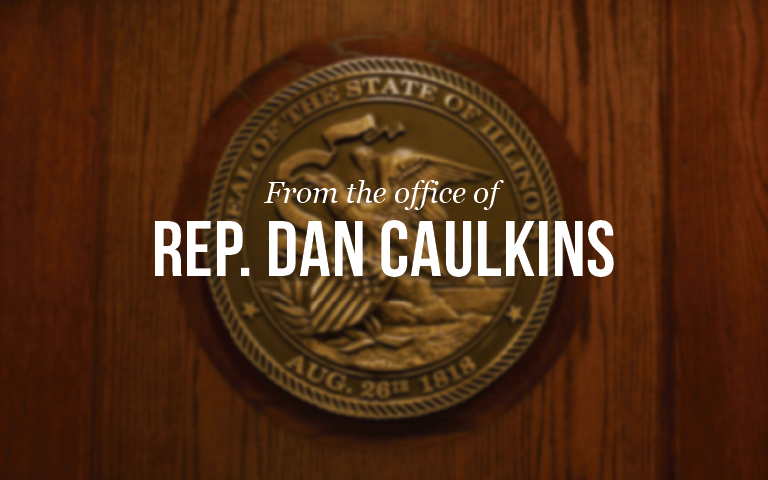New Wirepoints research shows that 102 of Illinois’ 175 largest cities get an “F” for their local pension crisis, according to State Representative Dan Caulkins (R-Decatur).
That’s a dramatic increase compared to 2003, when only seven cities received an “F” grade. Among Illinois’ 20 largest cities, Peoria was the state’s worst-off municipality with an “F” grade. Naperville was the best-off with a “C” grade. Locally the City of Decatur went from a “C” in 2003 to an “F” in 2019.
“This is a growing problem that should alarm everyone in Illinois,” Caulkins said. “We can’t afford to sit on the side lines and continue to watch our state and our communities drown in pension debt.”
Wirepoints analyzed the negative impact of Illinois’ local pension crisis by examining the finances of municipalities in 2003 and 2019. To allow for a like-for-like comparison, coverage was restricted to the 175 cities that have their own independent police, firefighter, and Illinois Municipal Retirement (IMRF) pension funds. Chicago was not part of the study.
The analysis was based on ten equally weighted metrics, ranging from the funded ratio of each local pension system, to the pension debt each household is on the hook for, to the share of city budgets consumed by pension costs. All cities were given an “A” through “F” grade based on a 100-point scale (10 points per metric), with 100 being the best score. In addition to the 102 cities that received “F” grades in 2019, 64 cities got a “D” grade. Only nine cities received an “A,” “B,” or “C” grade. In contrast, two-thirds, or 120, of the cities analyzed received an “A,” “B,” or “C” grade in 2003.
The key findings of Wirepoints’ report include:
- Workers’ retirement security has declined in an alarming number of Illinois cities. In 2003, just 21 of 175 cities analyzed had less than 60 cents on hand for every dollar they needed to fund future benefits of their city workers. By 2019, 99 of the 175 cities were below 60 percent funded. A 60 percent funding level is often seen as a point of no return from which pension funds can’t recover.
- City taxpayers have increasingly paid more to pensions over the past 16 years, and yet the pension shortfalls they are on the hook for are far larger today. Pension contributions of the 175 cities have nearly quadrupled to $960 million in 2019 from $250 million in 2003, and yet local pension shortfalls still tripled to $11.8 billion, up from $3.4 billion in 2003.
- Pension costs as a share of city budgets have doubled, crowding out spending on core government services. City pension contributions as a share of general budgets have doubled to 17 percent in 2019 from 8 percent in 2003.
- Most local pension funds have turned upside down – they now have more retirees drawing benefits than active workers contributing.
In 2003, only 15 cities had more pensioners drawing benefits than active workers making contributions into the fund. In 2019, that number rose to 112 cities. Illinois’ top-down, one-size-fits-all pension mandates leave city officials with few options but to raise taxes, slash services or endanger the retirements of city workers.
Springfield, for example, has laid off more than 40 police personnel over the last decade as pension contributions now consume the entirety of the city’s property tax dollars. Alton sold off its water treatment facility in 2018 for $54 million to help pay down the $113 million owed to its police and fire funds. Mount Prospect “fell behind on street maintenance” as it was forced to make tradeoffs between pensions and core services. Other cities are raising taxes and fees to try and keep up with pension expenses. Du Quoin recently hiked property taxes by 15 percent to avoid layoffs. Some cities, like Danville and Peoria, have created new “pension fees,” while others, including Bloomington and Elk Grove, have added new utility taxes to try and cover the growing costs.
“The majority of Illinois legislators continue to dismiss the need for a pension amendment and subsequent reforms, and yet they refuse to give cities the option of municipal bankruptcy as a last resort. That’s handcuffing local officials from doing what they can to save their communities from collapse,” says Ted Dabrowski. “If lawmakers do nothing, Illinois cities will continue to hollow out and slide toward insolvency.”
To read the full report, log onto https://wirepoints.org/.
